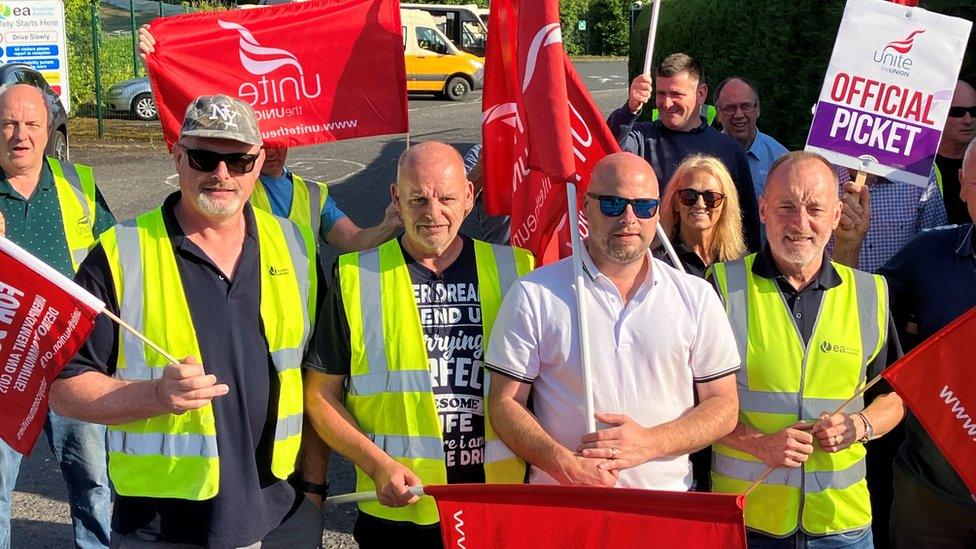School support staff at 'bottom of pile' over pay awards
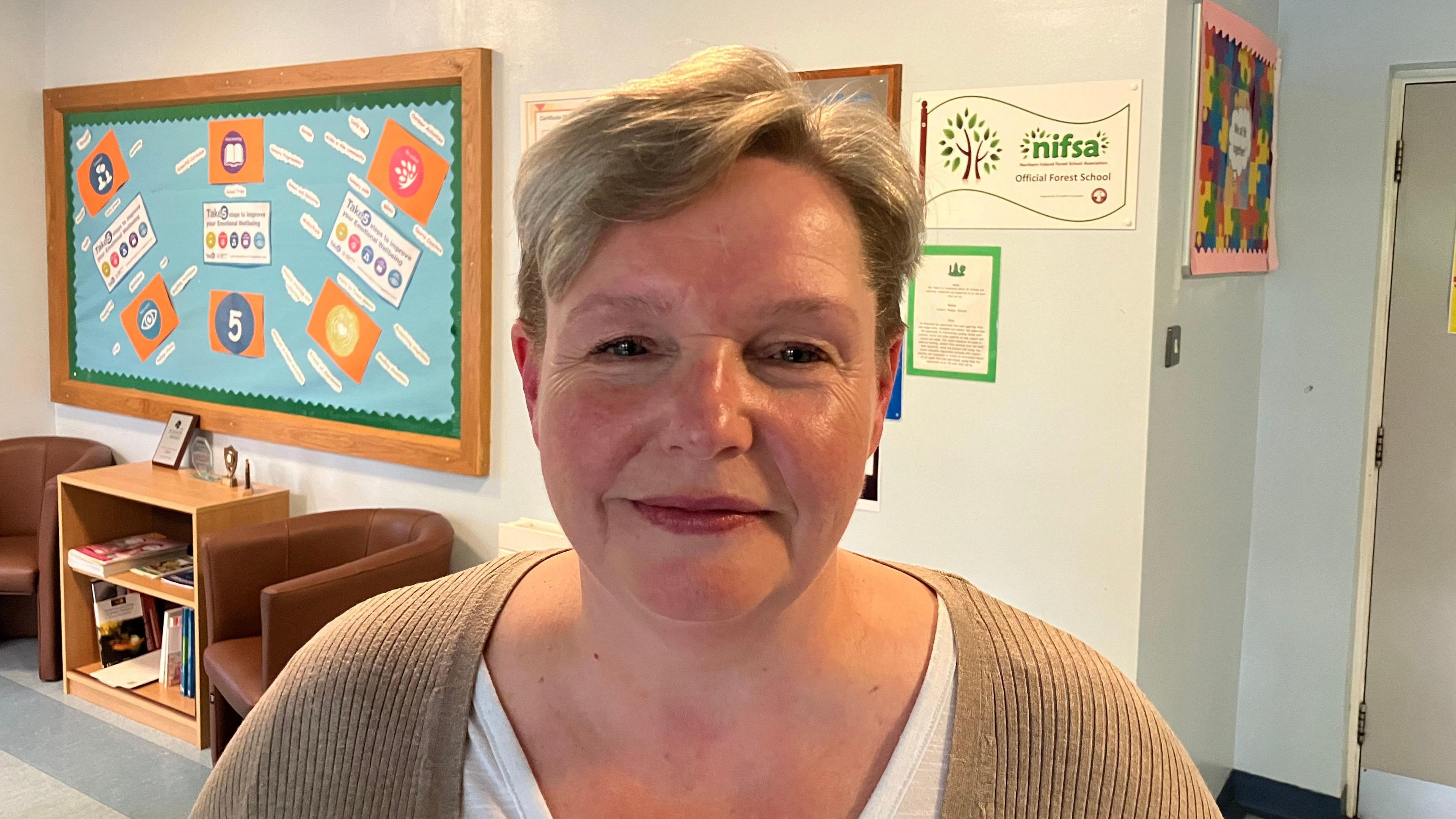
Joanne Whyte from Clarawood Special School in east Belfast said staff are not paid adequately for the work that they do
- Published
School support workers are at the "bottom of the pile" when it comes to receiving pay awards, a special school principal has said.
Workers such as bus drivers, classroom assistants and canteen staff are set to strike for several days in May and June.
Workers in the Unite, GMB and Nipsa trade unions are taking action over pay and grading.
Joanne Whyte from Clarawood Special School in east Belfast said staff are not paid adequately for the work that they do.
"When I look the classroom assistants we have here and look at the level of responsibility for children's care, hygiene, emotional needs that they carry all the time," she told BBC News NI.
"For them to be the lowest paid in the school environment, I just think it's appalling."
'An important job'
Ms Whyte said that without the work of support staff "all the needs cannot be met".
"I don't think money could pay them for the love and the care and the support that they give children and for them to be at the bottom of the pile when it comes to pay reform and job reviews, I think it tells you a lot about the value they are held in."
She said the support staff are in a position where they are the not only the lowest paid but also often in temporary employment.
"That affects their ability to get a mortgage, to feed their own families, to travel to and from school," she said.
"It impacts on every part of their life and yet they do such an important job."
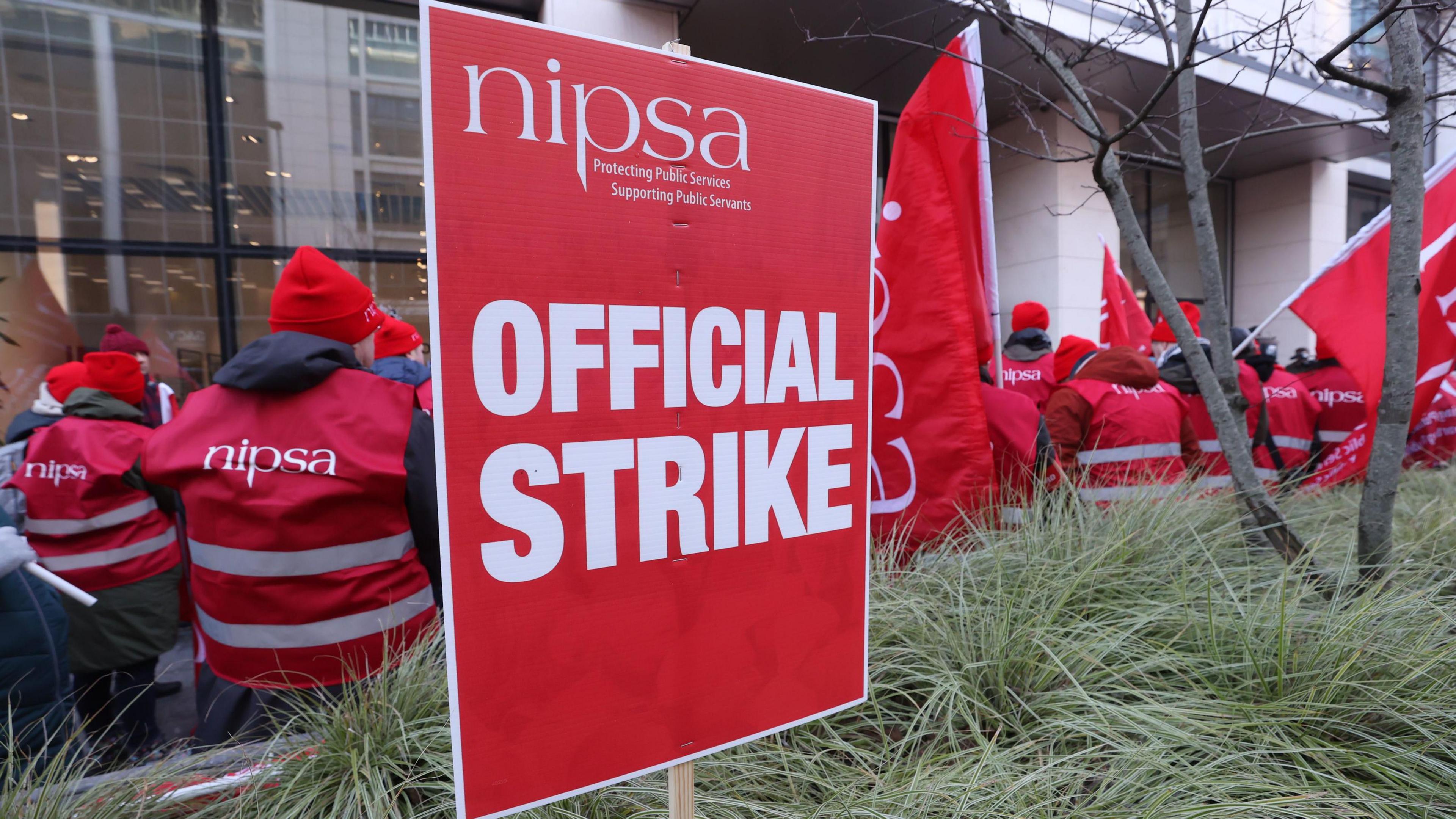
School support workers will take strike action in May and June
When are the strikes?
Unite and Nipsa members will go on strike from 20 to 22 May, while GMB members will strike on 20 and 21 May.
Members of all three unions will continue their industrial action on 3 and 4 June.
The strikes will involve more than 1,000 Unite members and more than 3,000 GMB members.
Staff taking part include classroom assistants, bus drivers, bus escorts, catering staff, administrative staff and other support workers who are members of Unite and GMB.
School bus drivers who are members of the Nipsa union will also strike.
Support staff are among the lowest paid workers in the education sector.
Continued pressure
The Nipsa, Unite, GMB and Unison trade unions issued a joint statement on Monday after a series of meetings with the Department of Education.
They said that the unions will "continue to apply all possible pressure including negotiations, lobbying and industrial action to achieve a just outcome".
Each trade union decides its own approach to an industrial action strategy and Unison is not taking part in the strikes.
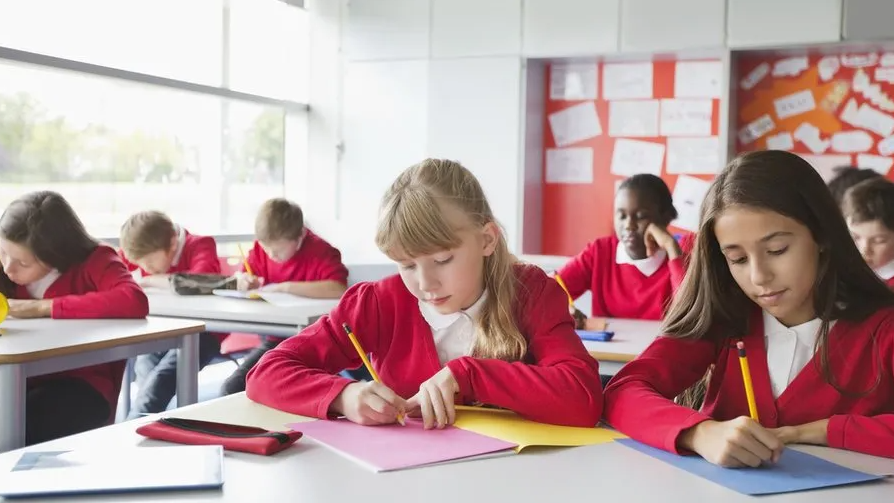
Schools are set to be affected by support worker strikes
Nipsa deputy general secretary Patrick Mulholland said the workers "feel betrayed and insulted by the failure of the Northern Ireland Assembly to address the pay and grading review issues".
He added: "Workers in education have been pushed into poverty and urgently need these issues addressed."
Mr Mulholland said that if the issue is not resolved, there will be "intensified action" up to the summer and "a storm of industrial strife in September".
'Angry and frustrated'
Unite general secretary Sharon Graham expressed her ongoing support for school support staff.
“If you average what these term-time workers are paid over 12 months, some receive less than the bare legal minimum," she said.
"This is an unacceptable situation which is resulting in a recruitment and retention crisis and mounting pressures on the workforce. They cannot take any more."
GMB senior organiser Alan Perry added that workers have "simply had enough".
He said: "GMB members employed across the education authority in non-teaching roles are angry and frustrated.
“Our members will not be used as political pawns by the Northern Ireland Executive it's time to pay them what they are worth."
Related topics
- Published17 January 2024
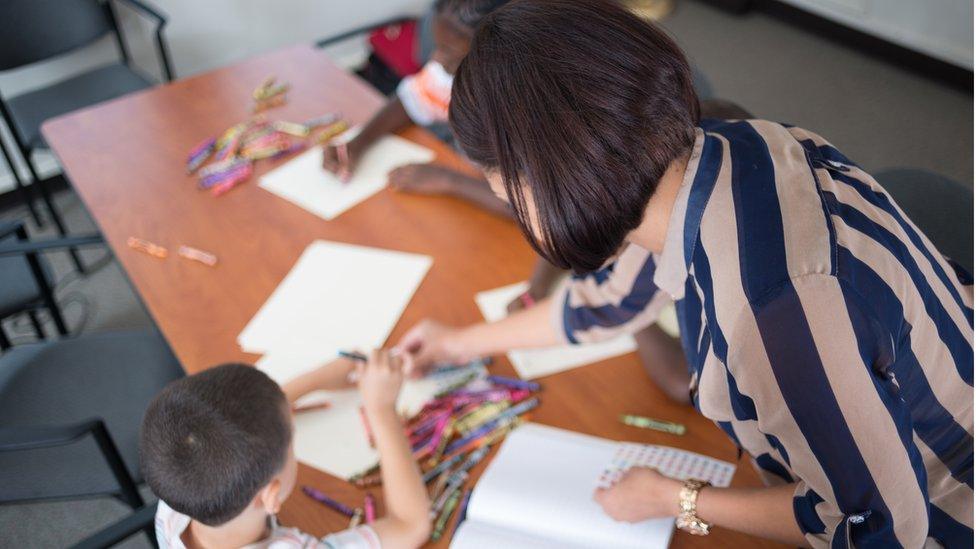
- Published16 November 2023
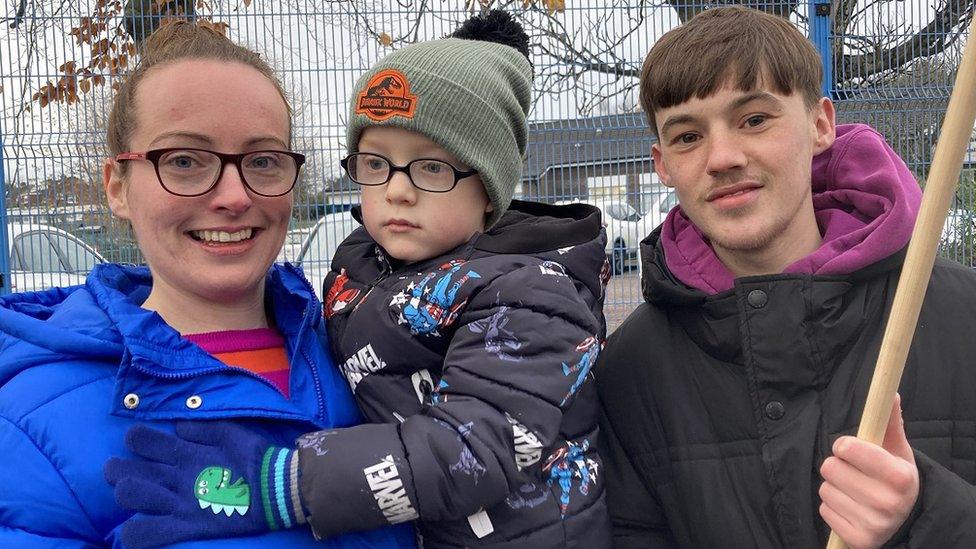
- Published10 January 2024
